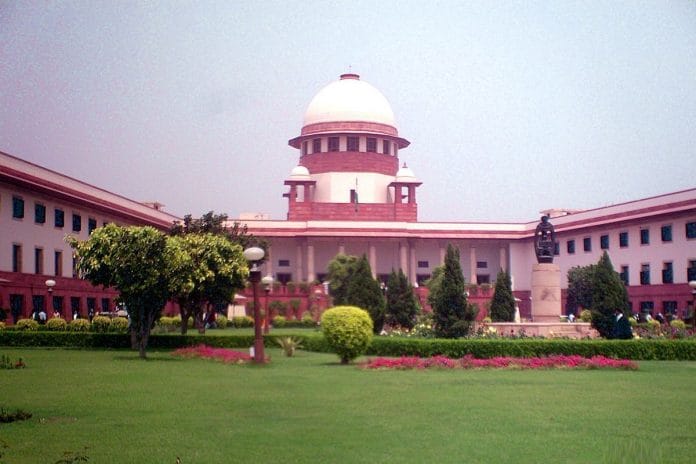The convicts challenged the warrants served to them by a district court in Sonipat after SC stayed a high court order that released them.
New Delhi: The Supreme Court Thursday refused to stay the arrest warrants issued against two convicts — Hardik Sikri and Karan Chhabra — who were sentenced to 20 years in jail in the O.P. Jindal University rape case.
The court, however, showed leniency to the third convict, Vikas Garg, who was awarded a jail term of seven years. He will continue to be out on bail.
The three were law students at the private university in Haryana and were found guilty of raping a fellow student on the campus in 2013.
“This is a rather peculiar case that the accused were in jail during the trial but have been granted bail after conviction,” the court remarked orally.
Hardik and Karan have already spent roughly two-and-a-half years in jail, while Vikas was in jail for less than less than two years.
The convicts had challenged the warrants served to them by a district court in Sonipat after the apex court stayed a Punjab and Haryana High Court order that released them until all appeals are exhausted.
Last week, ThePrint reported that despite the top court’s stay, the convicts were still at large. When the Haryana police set out to serve the warrants, the convicts were “not at home”.
The rape survivor had moved the trial court two months after the apex court’s ruling since the convicts had neither surrendered before the court nor arrested by the police. The challenge against the high court order was also made by her before the Supreme Court.
The high court in an order that hit headlines for its remarks on the victim’s “promiscuity” and “sexual escapades” released the convicts since the “narrative does not throw up gut-wrenching violence, that normally accompanies such incidents”.
The high court had stayed their sentence and released them, saying that “it would be a travesty if these young minds are confined to jail for an inordinate(ly) long period of time which would deprive them of their education, opportunity to redeem themselves and be a part of the society as normal beings”.
The apex court will now have to decide if the high court’s order is legally sound. It did not indicate the next date of hearing.






